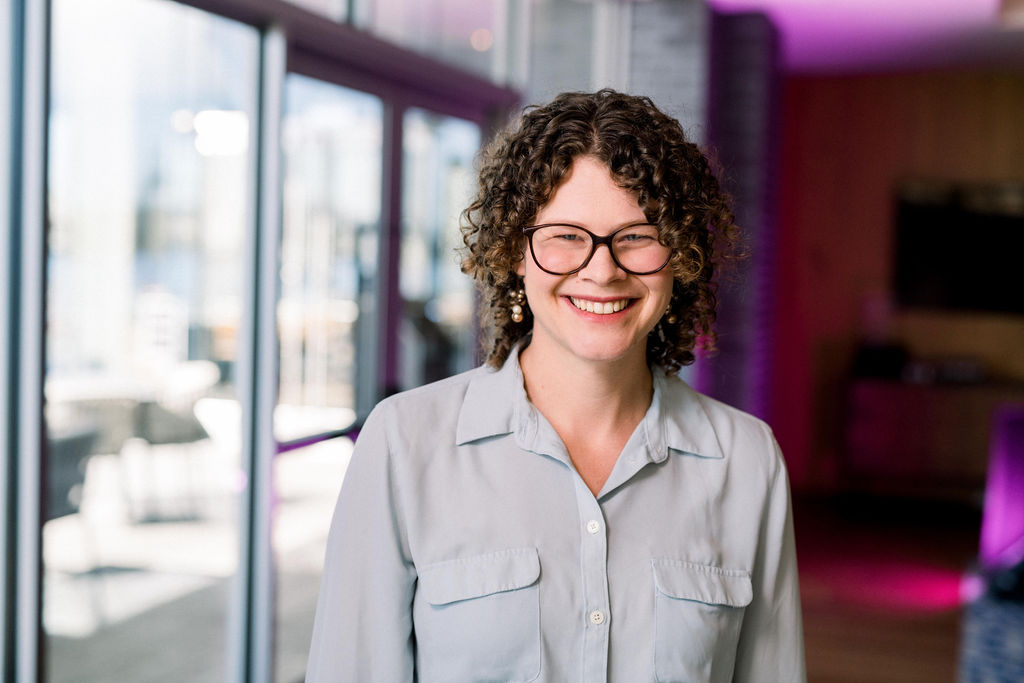Companies addressing healthcare disparities, fertility challenges and end-of-life planning are among the seven members of the latest 1501 Health cohort.
The participants in the 1501 Health Incubator’s second class were selected from a pool of 112 applicants, according to this week’s announcement. The septet represents a continuation of the partnership that Healthworx, the investment wing of insurance giant CareFirst, and the local healthcare corporation LifeBridge Health consecrated by launching 1501 Health last year. The incubator is designed to help early-stage health tech startups secure investment and scale their operations, and graduated its first cohort earlier this year.
Emily Durfee, the incubator’s co-manager and a Healthworx strategy director, told Technical.ly that CareFirst and LifeBridge Health stakeholders split the selection process’ operational components equally. This process started with applications closing in November and continued as selections were finalized in February. Candidates were evaluated according to such barometers as their market viability, strategic fit and ability to best use the assets 1501 Health offers them.
Those assets include investments of up to $100,000 for each company. The participants will also have special chances for mentorship (including with CareFirst executives, Durfee said), networking, educational sessions and other resources that can help them grow.

The cohort’s members come from four states and the United Kingdom, with only one being based in Baltimore. Six are led by women, which Durfee said reflected 1501 Health’s interest in DEI and equity issues.
“COVID-19 has shone a very bright light on these issues in health equity, so [DEI] was something we considered when selecting companies — both in the populations that they serve, and in the perspectives that they bring to the table themselves,” Durfee said.
Here are the seven companies participating in this year’s incubator:
- Flowy, from Los Angeles, which uses VR and National Institutes of Health data to help users handle anxiety and pain without medication
- Frame Fertility, from San Francisco, which offers guides, assessments and coaching to prospective parents trying to navigate their own fertility journey
- Health in Her Hue, from New York City, which aims to fight racial and gender disparities in care by connecting women of color with culturally competent providers
- Ryse Health, based in both Baltimore and Arlington, Virginia, an endocrinology practice whose technology coordinates care between its providers and patients with type 2 diabetes
- Xploro, from Manchester, UK, whose platform uses gamification and 3D modeling to help children with preexisting conditions develop health literacy
- Lantern, from New York City, which helps users and their families manage end-of-life care, from pre-planning conversations to post-mortem affairs management
- Candoo, from New York City, which gives older adults tech concierge services to help them use apps and technology in a safe and independent way
All of these companies will be officially honored during an event on April 27 at 1501 Health’s new physical space, which sits within CareFirst’s regional HQ in the Baltimore neighborhood of Canton.
“The physical space for 1501 Health is around 11,000 square feet of working space inside CareFirst’s Baltimore headquarters at 1501 S. Clinton St.,” Durfee noted. “The location includes conference rooms and space for collaboration, as well as a model clinic with exam rooms where the startups can test technologies.”







